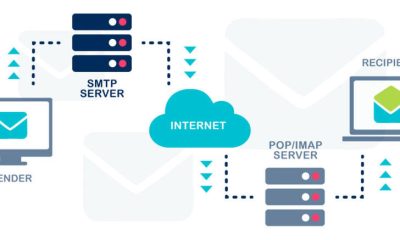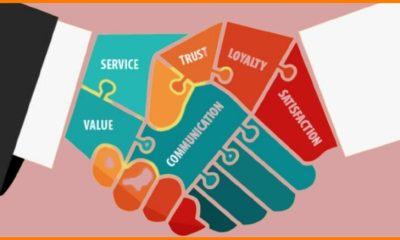Law
What jobs can I go for with a criminal justice degree?

There is nothing more interesting than a mystery, and what makes a human being tick is one of the biggest ones. If you love anything and everything crime-related and helping people, a career in the criminal justice sector might be for you. An online Bachelor of Science degree in criminal science will open many doors where you can serve, help your community and keep people safe.
However, taking an online criminal justice degree does not limit you to a career in law enforcement. In fact, criminal justice applies to many jobs in various fields. For example, choosing an online college that offers this degree, such as the Central Christian College of Kansas, will kickstart your career in a new, exciting world of opportunities. The courses are designed by experienced experts and taught by instructors with a rich background in law and policing. Programs will cover a wide range of subjects related to protecting others, solving crimes, and dealing with offenders. In addition, the courses include criminal law, forensics, crisis management, and corrections.
To help you decide whether taking a criminal justice degree is the right step for you, let’s consider what skills you need in this field. We’ll also go through the career paths you can choose in criminal justice after taking the course.
Essential soft skills for the criminal justice field
Soft skills are just as necessary, if not more so than hard skills. These core skills take your work above and beyond the job description and elevate your role and the service you provide. People working in the field of criminal justice have multi-faceted functions. They must protect the community while making quick, critical decisions under pressure or in a crisis. Learning to rely on your gut but remaining vigilant and observant are crucial for a successful outcome of any situation. These skills come with experience and learning about them from professionals.
Leadership
Being a good leader isn’t about you but your team. Strong and healthy leadership brings out the best abilities of all your squad and motivates them to work towards a common goal. A good leader understands that everyone’s voice and opinion are essential. However, they can take a painful decision while bringing everyone on board. You can practice leadership skills at any level of an organization – you don’t need a title to be a good leader. Giving a good example to those around you and teaching what you know will lift others. So does being organized and keeping everything on track.
A strong leader will shine in a career in criminal justice. Whether leading a team, working with colleagues, or helping the public, this skill will help you climb the career ladder while providing value to society.
Active listening and learning
Change is the only constant in life. Learning new information and life skills keeps our brains and bodies thriving instead of surviving. One of the best ways to achieve this is to listen actively. Law enforcement and criminal justice people need to learn how to listen. Actively listening to what people have to say with an open mind allows you to gather information, give grounded advice and understand different points of view. Through active listening, criminal justice professionals can take in what is being said verbally and non-verbally, analyze it and provide helpful feedback. The speaker also feels seen and heard without being judged.
Critical thinking
Individuals with criminal justice careers sometimes need to make split-second decisions. Working in a fast-paced environment means you need to be able to assess a situation and act quickly. Thinking on your feet requires a cool head and sharp observation skills. The thought process where you observe, analyze, interpret, and problem-solve often occur in minutes, if not seconds.
Observation
No detail is too small or insignificant, especially in criminal justice. Whether working in law enforcement, as a private investigator or learning about international fraud patterns, the skill of observation is essential. People on this career path are detail-oriented, meticulous, and observant as they know that everything can give them more information. Giving importance to details can make or break a case or solve or lose a crime. Learn how to sharpen your observation prowess with tried techniques by former law enforcement tutors.
Communication
This soft skill is at the top of the list to help you succeed in criminal justice. Effective communication goes beyond speaking or sending the correct email. This skill involves many factors, including body language, confidence, respect, listening, empathy, and emotional intelligence. It consists of knowing when and how to use the suitable medium. Communication helps create a connection between people, even with different points of view. Those working in law enforcement and related areas need to be effective communicators, whether speaking to victims, police officers, journalists, writing legal documents, or testifying in court.
Ethical decision making
Criminal justice professionals sometimes need to make a split-second decision when under pressure or pressed for time. However, these decisions must protect the community while preventing harmful actions. Learning to navigate any field with an ethical background in racial issues and socioeconomic challenges, for example, while protecting citizens’ rights, allows any professional to uphold the law and their principles.
Integrity
The importance of maintaining high standards as a criminal justice worker today holds true more than ever. A high standard of personal and professional integrity means that the right decision will be taken whether or not someone else is watching. Listening to other people’s viewpoints and giving them the space to be seen and heard will lead to trust and confidence in your work and the system. It will also help create a connection with the victim, person, and department, leading to understanding.
Important Technical Skills in Criminal Justice
Photography
Images are a vital tool for anyone working in criminal justice. They can provide the final evidence stamp to reports, discredit testimony or challenge a statement. Learning to take clear photos with the proper lighting and exposure can help win your case.
Report writing
Working in criminal justice means that you will need to write up official reports. These might even be presented in court as evidence. Good writing skills and a clean writing style with clear descriptions are essential for effective communication.
Computer literacy
Research is integral to any role in the criminal justice profession. Libraries and departments are now online. Computer literacy is essential with all the information available online, including official documents.
Interviewing
One of the main ways to get information is by speaking to people. With research and preparation, you will know the right questions to ask and how to listen for the answers.
Career paths in criminal justice
Jobs in criminal justice go far beyond working in law enforcement. You can choose to work in the private and public sectors through an in-depth course. We’ll give you an idea of what you can choose, and the salary range you can expect.
US Marshal
The US Marshal Service was set up in 1789, making it the oldest federal law enforcement agency. Marshals have the broadest arrest authority in the country compared to other federal law enforcement agencies. They help local and state agencies find and catch the most violent fugitives. Recent data by the US Marshal department reveals that, on average, they arrest 337 offenders daily. They also ensure the health, security, and safety of government witnesses and their immediate family.
Such witnesses need protection to testify against criminals such as drug traffickers, organized crime members, and terrorists. Marshals are also responsible for transporting criminals across the country on the ground and in the air. They manage and dispose of seized and forfeited properties bought by criminals through criminal activities. The Marshals Service currently manages more than $3.1 billion worth of properties across the US. The starting salary for a Marshal ranges from $38,500 to $48,000 and rises to $128,690. The average salary is around $77,210.
Crime scene officer
This previously little-known law enforcement department has become a household name thanks to the hugely popular television series and its spinoffs. Crime scene investigators provide the police with the evidence they need to close a case. They also help state prosecutors make their cases in court.
Crime scene officers collect evidence from a crime scene and put it together to recreate the incident. However, their role goes beyond boiler suits and rubber gloves. They need to be able to present and explain their findings clearly in court as a state witness. This career requires observation, attention to detail, communication, and problem-solving skills. A Bachelor of Science degree in criminal justice is the first stepping stone to becoming a crime scene officer. The average wage is $48,401 and can go up to $79,000.
Private investigator
The role of a private investigator has evolved from the stereotypical search for the spouse’s secret lover. Although that is still a popular service, modern private investigators can provide background checks, locate missing persons, asset investigations, surveillance, insurance and fraud investigations, and much more. Some even offer screenings of potential tenants or employees to provide extra peace of mind.
Gone are the days when a private investigator was the underdog trying to scrape by. A modern investigator needs a unique skill set to succeed. These include critical thinking, observation, responsiveness, and being quick to act. A legal background is crucial to know when to toe the line before taking action. A private investigator needs good communication skills to liaise with the client or give testimony in court.
Education and experience directly relate to a private investigator’s salary like any other job. Private investigators are usually paid by the hour, and a recent study found that the highest earning private investigators receive up to $90,000 a year. An online course can give you the right skills you need to take the first steps on this career path.
Fish and game warden
Fish and game wardens work with federal or state agencies to protect and conserve wildlife and fish by enforcing laws. They are also responsible for preserving and managing wildlife and improving natural habitats. This job combines enforcement, education, and conservation with state agencies. Wardens can also issue hunting and fishing licenses, organize or participate in search and rescue operations and provide backup to law enforcement agencies in rural areas. They also focus on preventing illegal poaching and can appear as witnesses in court. Wardens have the power to impound vehicles or weapons used illegally or confiscate illegally caught fish or game. Aside from this, they carry out census counts of wildlife and monitor industrial polluters. They typically cover vast amounts of terrain. In fact, there are only 35 wardens for the state’s 110,000 square miles in Nevada. This job is for those who love to be out in the wild, at one with nature. The average wage is around $60,730 and can go up to $79,330.
Immigration and customs enforcement agent
The US Immigration and Customs Enforcement Agency, also known as ICE, protects the country’s borders from illegal immigrants, terrorists, drug traffickers, and cross-border crime. With thousands of officers across the US, ICE is the largest investigative agency in the Department of Homeland Security. Their duties range from border patrol, human trafficking, child exploitation, cyber-crime, deportation, and intelligence gathering. ICE agents also collaborate with other federal agencies such as the Federal Bureau of Investigation, Border Patrol, and others within the Department of Homeland Security. A bachelor’s degree in criminal justice is a must to get started in ICE, which offers a variety of roles, including:
- Deportation Officer (DO)
- Detention and Deportation Officer (DDO)
- HSI (Homeland Security Investigations) Special Agent
- Immigration Enforcement Agent (IEA)
- Intelligence Officer
- Management and Program Analyst
- Mission Support Specialist
- Auditor
- Criminal Research Specialist
- Investigative Assistant
- Technical Enforcement Officer
The starting salary for an ICE agent is $41,200 and goes up to $128,690, with an average salary of $80,000.
Police officer
Police officers are the first responders in the community, and are responsible for public safety and law enforcement. In addition, their role is educational and preventative. Officers investigate crimes and accidents, patrol areas to ensure that civilians obey the law, arrest suspects, and collect evidence. They can issue citations for minor offenses like traffic violations and testify in court. However, police officers also help build relationships with the community, especially the vulnerable. They are the first point of contact that many people have with criminal justice professionals, giving the role a huge responsibility. Police officers must continue to further their education to keep up with the latest research. A law enforcement officer’s base salary is an estimated $55,500 year, while the most experienced can make up to $80,000.
FBI agent
There is no such thing as a typical day for an FBI agent. This criminal justice professional enforces many federal laws and performs various roles in the Bureau. More than 35,000 people work with the FBI, including special agents, intelligence analysts, language specialists, scientists, and information technology specialists. Agents in the field offices testify in federal court, execute search warrants and gather evidence. Some agents focus on specialized fields like training, fingerprinting, lab services, and public affairs, while others are supervisors or managers.
FBI agents must be ready to work long hours and relocate to different parts of the world at a moment’s notice. The duties of a special agent include compiling information and developing a case, working with local law enforcement, gathering evidence, and carrying out surveillance. Agents also investigate foreign operatives, criminals, and terrorists, participate in raids and arrests and interview suspects.
Although the entry process to join the FBI is rigorous, a criminal justice degree will pave the way to becoming an agent. With so many people working at the FBI, it is hard to pinpoint an average salary. However, the starting salary is around $20,175 and can go up to $536,075, with a median range of about $96,709.
Why not study for a Bachelor of Science in criminal science degree with the Central Christian College of Kansas? The course works around your needs, whether these are financial or time-bound. It is offered several times during the year, allowing you to find a six-week gap that works in your schedule. You can even take it during the summer when the kids are on holiday and busy with their own activities. Because the modules are only six weeks long and online, the course is completely accessible. Aside from this, you won’t be charged any application or transcript fees to sign up for the online criminal justice degree. There is no hassle with entry requirements either. All you need is your high school diploma, GED, or higher education transcript. You can also transfer previous college credits to speed up your degree.
Law
Choosing the Right Will and Trusts Attorney for Your Estate Planning Needs


Understanding the Difference: Wills vs. Trusts
Decoding Wills: What You Need to Know
Wills are fundamental legal documents that dictate how an individual’s assets will be distributed upon their death. At their core, a will serves as a blueprint for an individual’s last wishes, ensuring that their belongings are passed on to the designated heirs or beneficiaries. It typically outlines who will inherit specific assets, who will manage the estate (the executor), and other stipulations such as guardianship provisions for minor children. A will only goes into effect after probate, a legal process that validates the will and oversees the distribution of assets under court supervision.
Importantly, the drafting of a will requires careful consideration of various factors including the specific language to be used, adherence to state laws, and the individual’s personal wishes and circumstances. Many people overlook the nuances of state probate laws, which can significantly impact how a will is executed and the timeline for asset distribution. This is why consulting with a will and trusts attorney is often essential, as they can provide guidance on minimizing legal complications and ensuring compliance with state requirements. Furthermore, a will is public record once it enters probate, which means the details of an estate can be accessed by anyone, raising concerns for individuals who may prioritize privacy over transparency.
Trusts Unveiled: More than Just a Safety Net
Trusts are often regarded as more versatile and dynamic than wills, offering a range of options for estate planning that can be tailored to meet specific financial and personal needs. A trust is a legal arrangement where a third party, known as a trustee, holds assets on behalf of beneficiaries. Trusts can be structured to take effect during and after the grantor’s lifetime, providing a means to manage estate assets in a way that a simple will cannot. One of the most significant advantages of a trust is that it allows for the direct transfer of assets to beneficiaries, bypassing the lengthy and often costly probate process, effectively keeping the estate private.
Different kinds of trusts serve distinct purposes; revocable living trusts can be altered or revoked during the grantor’s life, providing flexibility, while irrevocable trusts generally cannot be changed once established, but they offer powerful estate tax benefits. Additionally, certain trusts can mitigate tax liabilities, offer protection against creditors, or ensure that assets are managed responsibly for beneficiaries who may be minors or those who struggle with financial management. The breadth of options available within the realm of trusts is vast, allowing individuals to devise complex estate plans that can respond to changing life circumstances, financial markets, and personal goals more adeptly than a traditional will.
Choosing Between a Will and a Trust: Factors to Consider
The decision between creating a will and a trust involves multiple factors that individuals must assess based on their unique financial situations, family dynamics, and long-term goals. One of the first considerations is the size and complexity of the estate; larger estates with varied types of assets might warrant the creation of a trust to avoid probate and facilitate smoother asset distribution. Conversely, for those with smaller or more straightforward estates, a will may suffice.
Another essential factor is the level of control desired over asset distribution. Trusts can provide specific instructions on when and how beneficiaries receive their inheritance, which can be vital in cases where individuals wish to protect minors or provide for someone with special needs. If maintaining privacy is a paramount concern, trusts excel as they bypass the public nature of probate proceedings associated with wills. Additionally, tax implications and strategies for minimizing taxes on inheritance can make trusts more attractive for certain individuals.
Ultimately, the determination between a will and a trust is heavily influenced by personal circumstances, with many individuals opting for a combination of both to maximize the benefits and protections afforded by each legal instrument. Engaging with a seasoned estate planning attorney can significantly aid in navigating these considerations and developing a tailored approach that aligns with one’s specific estate planning objectives.
Key Qualities to Look for in Your Estate Planning Attorney
The Role of Experience: Why It Matters
When searching for an estate planning attorney, one of the foremost qualities to consider is experience. An attorney’s years of practice and their familiarity with estate planning nuances can significantly impact the quality and effectiveness of the estate plan created. They should possess a strong understanding of state-specific laws, tax implications, and the intricacies of both wills and trusts which vary considerably across jurisdictions. Experienced attorneys bring insights gleaned from past cases and can foresee potential pitfalls, ensuring that the estate plan stands robustly against challenges that may arise during its execution.
A deeper level of experience involves exposure to a diverse range of estate planning scenarios, from simple wills for individuals with modest estates to complex trust arrangements involving business interests, real estate holdings, and blended family dynamics. The attorney’s past cases can offer tangible evidence of their problem-solving capabilities and their approach to finalizing estate plans that ensure client wishes are honored while minimizing risks. Moreover, an attorney’s track record in handling probate or estate litigation can be invaluable should disputes arise after the passing of the individual, thereby underscoring the importance of selecting a knowledgeable and well-rounded practitioner in the field of estate law.
Communication Skills: Finding Your Ideal Advocate
Effective communication is critical in the relationship between you and your estate planning attorney. You should seek an attorney who can articulate complex legal concepts in a clear and understandable manner, allowing you to fully comprehend your options and make informed decisions. A good attorney will take the time to listen to your specific needs, concerns, and goals, ensuring that the estate plan reflects your unique wishes. They should provide reassurance as you navigate the sensitivities associated with estate planning decisions, often involving family dynamics and future uncertainties.
Additionally, inquire about their subsequent communication style and responsiveness to emails or phone calls, as a high level of accessibility can greatly enhance the overall experience. Establishing a rapport with your attorney can also foster an environment of trust, which is essential when discussing personal and often emotionally-charged topics such as inheritance, guardianship, and family legacies. Remember, the estate planning process is not about just completing a set of legal documents; it is about building a long-term relationship with a legal partner who will advocate for your best interests across any future circumstances.
Trustworthiness: Building a Solid Foundation
Trustworthiness is arguably one of the most vital qualities to seek in your estate planning attorney. Given the sensitive nature of estate planning, which often includes discussions regarding finances, personal relationships, and future intentions, finding a trustworthy attorney will allow you to feel secure in sharing such sensitive information. A trusted attorney should display integrity, transparency, and a genuine commitment to helping you achieve your goals.
Research their reputation within the community, beginning with reviews and testimonials from former clients, as well as recommendations from other professionals, such as financial advisors or tax consultants. Additionally, consider their standing within professional organizations or bar associations, as active involvement in the legal community can signal a commitment to ongoing education and ethical practice. Ultimately, the security of knowing that your estate planning attorney has the best interests of your family at heart and is dedicated to ensuring that your legacy is honored can provide immense peace of mind.
Questions to Ask During Your Initial Consultation
Unveiling Their Approach: Strategies for Your Estate
During your initial consultation with a potential estate planning attorney, it is essential to inquire about their approach to estate planning. Understanding their overarching strategies allows you to gauge if their philosophy aligns with your needs. Engage them on questions about how they tailor estate planning services to reflect individual client circumstances, the importance of flexibility within estate plans, and how proactive they are in anticipating changes to laws that may affect your estate.
It can also be beneficial to discuss their approach toward educating clients throughout the process. A quality attorney will ensure you understand every step of the estate planning journey, providing explanations of how each part of the plan fits into your overall wishes. Additionally, assess their methods for maintaining an ongoing relationship with their clients, as planning for the future is not a one-time task. Inquire about how they will modify your estate plan to adapt to changes in personal circumstances or new legal developments, ensuring that your plan continues to serve your family’s best interests effectively.
Understanding Fees: What’s Fair and What Isn’t
The cost of hiring an estate planning attorney is often a pivotal consideration. Different attorneys charge different fee structures; therefore, it is vital to discuss fees upfront during the initial consultation to avoid misunderstandings down the line. Common billing methods include hourly rates, flat fees for specific services, or retainers that cover various aspects of estate planning. Asking for a detailed breakdown of potential costs associated with the creation of wills, trusts, and other estate planning options can provide transparency into what you should expect.
In addition, understanding how long the process may take and any anticipated ongoing expenses related to asset management or modifications can alleviate future surprises. A fair attorney will be upfront about their fees, the value they provide, and will willingly share references for potential expenses based on various scenarios. Ultimately, the goal is to invest wisely in an attorney who provides both expertise and genuine service without subjecting you to unanticipated costs or complications.
Assessing Compatibility: Finding Your Perfect Match
Compatibility with your estate planning attorney is paramount; a positive rapport fosters collaboration and openness, which are critical in addressing sensitive estate matters. You should feel comfortable discussing intricate family dynamics or personal preferences without fear of judgment. Take the time to evaluate how well the attorney listens to your concerns, respects your values, and aligns with your vision of how your legacy should be managed.
Observing how they respond to your questions and how receptive they are to your insights can also offer a glimpse into their working style. An attorney who is genuinely interested in your perspective will be better equipped to create a comprehensive and thoughtful estate plan that resonates with your desires. Additionally, consider the attorney’s communication style—do they follow up with you in a timely manner, and do they make you feel valued as a client? Ensuring that all these elements align will contribute heavily to the effectiveness of your estate planning experience.
Navigating the Complexities of Estate Planning
Tax Implications: Avoiding Costly Mistakes
One of the trickiest aspects of estate planning is navigating the myriad tax implications that accompany asset transfer upon death. There are different tax responsibilities for estates, heirs, and trusts that can significantly impact the distribution and value of the assets left behind. Estate taxes, which can impact larger estates, require careful planning to minimize potential liabilities. Proper structuring through the use of trusts, gifts, or family limited partnerships can help mitigate exposure to these taxes.
Moreover, understanding the taxable assets within an estate, including real estate and investments, is essential. The key is to work with an attorney who can position your estate to take advantage of potential exclusions, deductions, and credits that can reduce the overall tax burden borne by heirs. Furthermore, be aware of state-level estate and inheritance taxes that can vary and can catch individuals by surprise if not accounted for properly. Proactive tax planning ensures that the wealth you intend to pass on to your heirs is preserved as much as possible, ultimately safeguarding their inheritance against unnecessary tax liabilities.
Updating Your Estate Plan: When and Why It’s Crucial
Estates are not static; they evolve as individuals and families encounter major life changes. Regularly reviewing and updating your estate plan is crucial to ensure that it remains aligned with your current circumstances and priorities. Key life events such as marriage, divorce, births, deaths, or significant financial changes should prompt a thorough reassessment of your estate documents. Additionally, major shifts in law or tax policy can also necessitate updates to an estate plan to safeguard against new liabilities or compliance issues.
Many individuals overlook the necessity of change until faced with the reality of probate or asset distribution challenges. Updated plans ensure the continuity of your intentions across a lifetime, allowing for proper asset management, alteration of beneficiaries, and amendments regarding guardianship for minors. Engaging with your estate planning attorney on a regular basis, or at least every few years, not only keeps your documents up to date but fosters ongoing dialogue that may uncover new strategies or considerations to enhance your estate plan further.
Common Pitfalls to Avoid: Lessons from Real Cases
As you embark on the estate planning journey, it is imperative to learn from the common pitfalls that have troubled others. One of the most frequent mistakes is failing to communicate your estate plan to your family members. Lack of transparency can lead to confusion, disputes, and in worst-case scenarios, prolonged litigation after your passing. Open discussions can promote understanding and prevent misunderstandings among family members regarding asset allocation and intentions.
Another common pitfall is neglecting to update beneficiary designations on assets such as life insurance policies, retirement accounts, or bank accounts after key life events. Designations generally supersede instructions left in wills or trusts; therefore, failing to keep them current creates potential for unintended distributions that may not align with your wishes.
Moreover, many individuals underestimate the complexity of estate taxes and the significant impacts they can have on the estate value and the inheritances left to heirs. Lack of comprehensive tax planning or strategic asset division can lead to unnecessary financial burdens on the beneficiaries. To avoid these pitfalls, consider seeking professional guidance from an estate planning attorney who can provide specific strategies on how to navigate the most common challenges faced and create a lasting plan that serves your family’s best interests long after you are gone.
Law
Legal Cash Advances: Bridging the Financial Gap Between Health Needs and Justice


When an accident lands you in both the emergency room and a courtroom, the medical bills can pile up long before a settlement check ever arrives. That delay isn’t just a numbers game—it has real-world consequences for your well-being. Mounting research links financial strain to higher risks of anxiety, chronic disease flare-ups, and delays in necessary care. In other words, the money you need to stay healthy often arrives after health has already taken a hit. That’s where legal cash advances step in, offering plaintiffs a lifeline that keeps medical and everyday expenses on track while a lawsuit runs its course.
What Exactly Is a Legal Cash Advance?
A legal cash advance—sometimes called pre-settlement funding—is a non-recourse advance offered to plaintiffs with a pending personal injury or similar claim. Because repayment is contingent on winning or settling the case, it differs from a traditional loan: if the case is unsuccessful, the advance typically does not have to be repaid. The American Bar Association notes that consumer-focused litigation funding is usually capped at relatively modest amounts and is designed to cover day-to-day living or treatment costs rather than bankroll an entire trial strategy.
Why Financial Stress Is a Health Issue
It’s easy to treat money and medicine as separate concerns, yet public health data tells another story. The Centers for Disease Control and Prevention reports that 90 percent of the nation’s $4.5 trillion annual health-care spend relates to chronic and mental health conditions—conditions that are aggravated by stress. Stress hormones such as cortisol can disrupt sleep, raise blood pressure, and weaken the immune response, creating a vicious cycle in which unresolved medical bills exacerbate illness, and worsening illness amplifies costs.
The Real-World Cost of Waiting for a Settlement
Even a short gap between injury and compensation can destabilize a household budget. According to the CDC’s National Health Interview Survey, nearly one in ten U.S. adults lives in a family that has struggled to pay medical bills during the previous 12 months, with higher percentages among those already managing disabilities. For plaintiffs, the situation is often more acute: regular income may dip due to lost work hours, while co-pays, physical therapy, and prescription expenses spike.
How a Cash Advance Supports Ongoing Care
Here’s where a legal cash advance becomes more than a financial tool—it can be a health-preserving measure:
- Continuity of treatment– Plaintiffs can afford recommended follow-up visits, diagnostic imaging, or prescription refills instead of postponing care until “after the settlement.”
- Reduced cost-related non-adherence– Studies show that people under financial pressure are more likely to skip doses or self-ration medication. Access to immediate funds helps prevent that risky behavior.
- Mental-health relief– Knowing that rent and utility payments are covered lightens the cognitive load, letting you focus on physical recovery and the legal process, not late fees.
A Deeper Look at Plaintiff Advantages
For readers who want to unpack how plaintiffs specifically benefit, beyond the medical angle, take a look at an in-depth exploration of the key plaintiff advantages offered by legal cash advances. You’ll find a detailed breakdown of fee structures, approval timelines, and risk considerations that complement the health-centered discussion here.
Due Diligence: Choosing a Reputable Funder
Not every funding offer is equal, and the wrong terms can undercut the very relief you’re seeking. Consider these checkpoints:
- Transparent pricing– Look for a clear, flat fee or interest schedule, laid out in plain English.
- Independent legal counsel– Ethical funders encourage your attorney to review the contract.
- No control over litigation strategy– As emphasized by ABA guidance, funding companies should not direct your attorney’s decisions.
Ask questions, read the fine print, and be wary of pressure tactics. A short-term fix that balloons into an oversized payoff can negate health and financial gains.
Potential Trade-Offs and How to Manage Them
Every financial tool carries downsides. Fees can be higher than conventional credit, and stacking multiple advances magnifies repayment obligations. Talk openly with your lawyer about realistic settlement ranges, how much of that amount a funder has first claim to, and what your net recovery might look like before signing anything. If the numbers no longer cover medical follow-up or household recovery, a smaller advance—or none at all—may be the healthier choice.
The Bigger Picture: Health, Justice, and Financial Stability
Legal cash advances aren’t a magic wand, but they do narrow the dangerous gap between injury-related expenses and eventual compensation. By easing cash-flow crunches, they help plaintiffs avoid treatment delays, medication lapses, and the stress spirals that chip away at recovery. That synergy between financial stability and health outcomes is why pre-settlement funding has become a recurring topic in both legal and public health circles.
When weighing your own options, ground the decision in credible data, a candid budget review, and professional legal advice. Do that, and a well-structured advance can serve as one more tool, alongside physical therapy sessions and follow-up lab work, on the road to reclaiming both health and financial peace of mind.
Read More: Jessica Ditzel
Law
A Detailed Overview of the Litigation Process


Litigation is the formal legal process used to resolve disputes between individuals, businesses, or other entities. This process plays a crucial role in ensuring justice in cases such as personal injury claims, contract disputes, and divorce proceedings.
If you are interested in Litigation Crowdfunding, check this read Litigation Crowdfunding: Do’s and Don’ts — 8 Tips to Maximize Success
Civil Litigation and Court Jurisdiction
Civil litigation can occur in either state or federal courts, depending on the nature of the dispute. In the United States, the Federal Rules of Civil Procedure govern cases in federal courts, aiming to provide a just, speedy, and cost-effective resolution for all involved parties.
The Litigation Process
While the specifics of litigation can vary by jurisdiction, the general process follows these key steps:
1. Filing a Complaint
When the plaintiff formally submits a claim to the court, describing the disagreement and the legal foundation for their position, the procedure officially starts. After that, the court notifies the defendant about the lawsuit through papers.
2. Pre-Trial Motions and Discovery
Motions may be submitted by any party asking the judge to render particular decisions. Typical motions consist of: A motion to compel discovery asks the court to mandate that the other party provide crucial information; A motion for summary judgment is a proposal to settle a case without a full trial when one side is legally entitled to win and the facts are undeniable.
The next step is the discovery phase, during which both parties collect evidence, share documents, and conduct depositions in order to strengthen their views.
3. Trial Proceedings
The case goes to trial if it is not dismissed or settled. Both sides offer arguments and supporting documentation during the trial.
Witnesses may be cross-examined and called to testify.
The burden of proving claims, such as proving negligence in a personal injury case, usually rests with the plaintiff.
4. Verdict and Judgment
The verdict of the case is decided by a jury or a judge. The right to a jury trial is guaranteed by the U.S. Constitution if the plaintiff seeks monetary damages over $20, unless all parties agree to forgo this right. A judge typically renders a decision in cases involving non-monetary remedy, like an injunction.
5. Appeals and Enforcement
A party may file an appeal with a higher court to request a reconsideration of the decision if they are unhappy with it. The verdict is implemented through the judicial system if the appeal is denied.
Arbitration: An Alternative to Litigation
Arbitration is a form of alternative conflict resolution that is useful for people who want to avoid drawn-out and expensive court cases. An unbiased arbiter considers the matter and renders a binding ruling in lieu of a trial, which frequently results in a quicker and more economical resolution.
The Problem of Frivolous Litigation
Although frivolous lawsuits—cases brought with little legal basis, frequently as part of class actions or mass tort claims aiming at financial gain—have become a burden on the litigation system, which is meant to settle legitimate issues. These cases can cost defendants a lot of money, take years to conclude, and deplete the court’s resources. Resolving this issue is essential to preserving a just and effective judicial system.
One essential method for settling conflicts and defending legal rights is still litigation. Businesses and people can successfully manage legal disputes by being aware of the procedure, available options such as arbitration, and the difficulties presented by pointless litigation. Being well-informed is essential to getting the best result whether filing a lawsuit or defending against one.
Resource:https://instituteforlegalreform.com/blog/what-is-litigation/
Read More: jacqulyn elizabeth hanley
-



 Biography7 years ago
Biography7 years agoJacqulyn Elizabeth Hanley is the Mother of Liza Soberano?
-



 Biography7 years ago
Biography7 years agoAmanda Levy Mckeehan Biography, Family, Net Worth, Age, Affairs, Facts
-



 Home6 years ago
Home6 years agoEpson L3110 Driver Free Download Latest Updated Version
-



 Games4 years ago
Games4 years agoBest Free To Play MMORPG To Try This 2021
-



 Biography7 years ago
Biography7 years agoWho is Rose Dorothy Dauriac? Scarlett Johansson Daughter?
-



 Home7 years ago
Home7 years agoLiza Soberano Biography, Age, Family and Boyfriends
-



 Biography7 years ago
Biography7 years agoJessica Ditzel Secret Information that Nobody Knows | Joe Rogan’s Wife
-



 Biography7 years ago
Biography7 years agoWhat is the relation of Nathaniel Larry Osorno with Liza Soberano?































